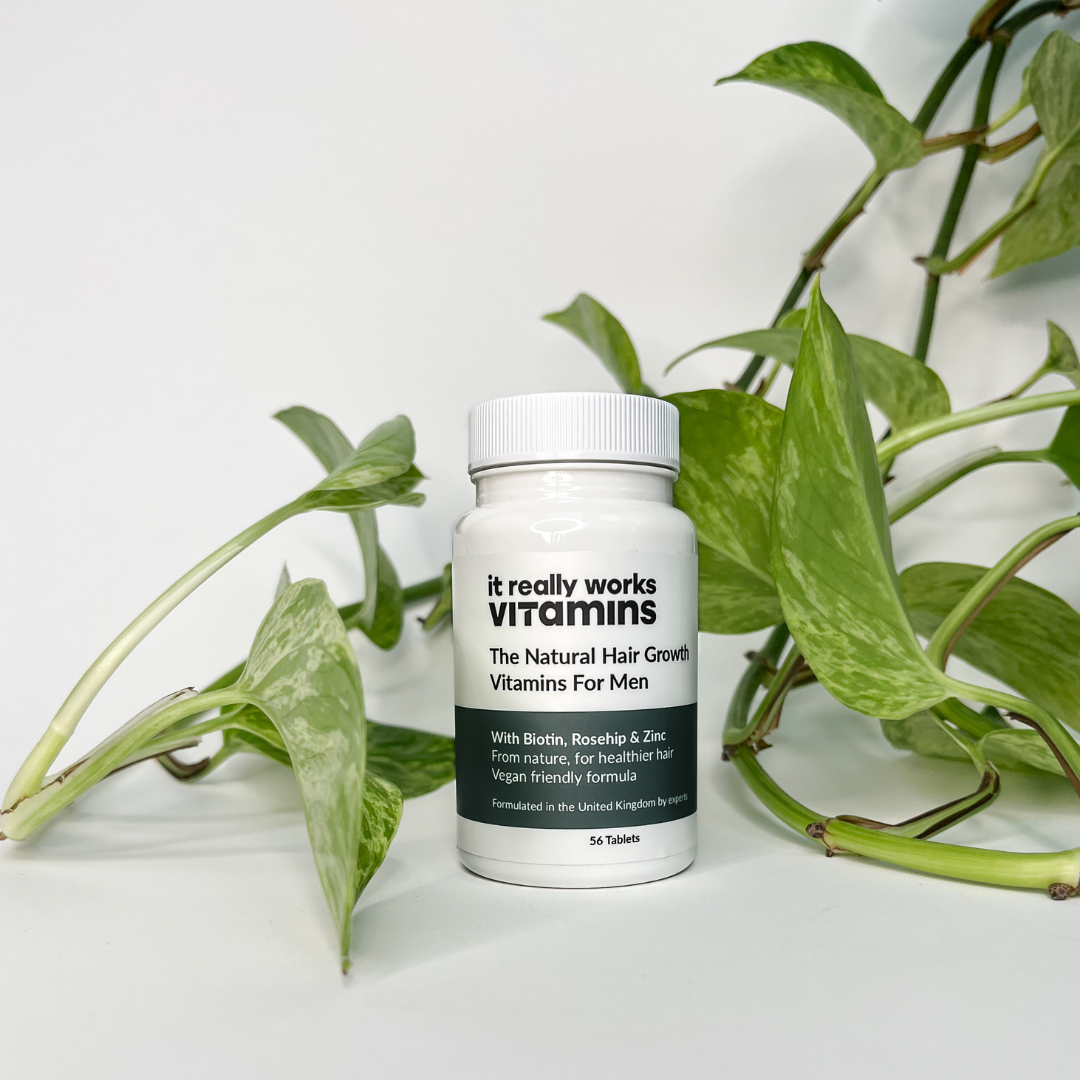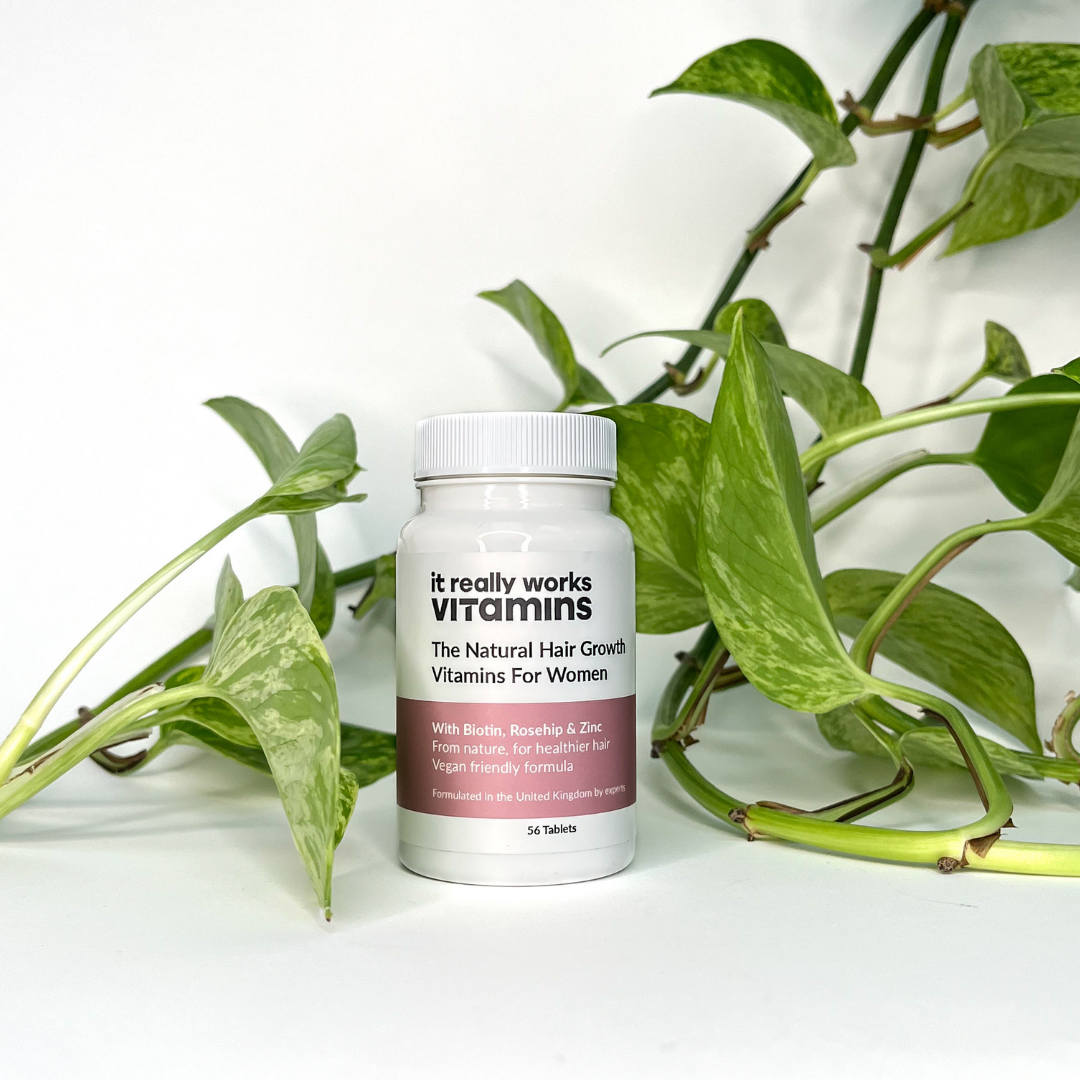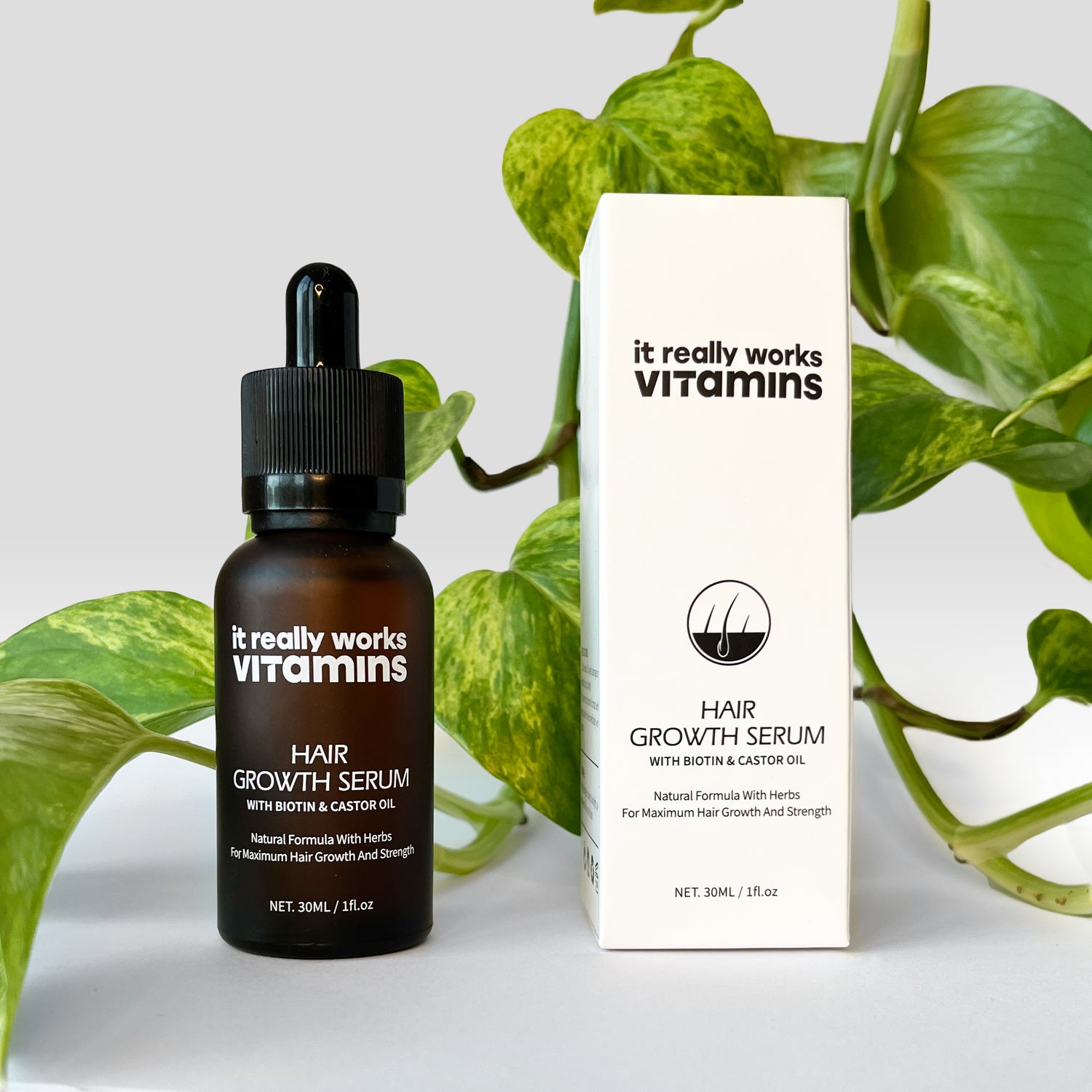In this blog we explore the link between Creatine, Whey Protein and DHEA and hair loss.
The results are pretty surprising - the type of exercise you’re doing could be raising your testosterone levels and in turn - speeding up hair loss in genetically predisposed men.
If like thousands of guys you’re getting the most out of your work-out by supplementing it with the performance enhancer, Creatine Monohydrate, it’s vital that you have all the information to hand about the effects that this powerful supplement is having on your body, now and in the long run.

What is Creatine?
Creatine is a naturally occurring nitrogenous organic acid and helps to supply energy to all cells in the body, primarily muscle.
Creatine has the effect of pulling water into your muscles, giving the appearance of a more muscular physique.
Meat is one of the best sources of creatine. According to Iowa State University Extension, beef contains 5 grams of creatine for every 2.5 pounds of meat. You’ll also get about the same amount from pork, however creatine is very sensitive to heat, so most of it is lost during cooking.

Can increased Creatine intake lead to hair loss?
The most common side effect of creatine supplementation is water retention, but other possible side effects include: muscle cramps, nausea, dizziness, stomach problems, dehydration and heat intolerance.
Creatine is not suitable for people with kidney disease or those with kidney problems.
It has not been clinically proven as to whether creatine can cause or aggravate hair loss. However, there is a direct link between an increased intake of creatine and higher levels of testosterone which may accelerate hair loss in men who are genetically predisposed to male pattern balding.
Testosterone reacts with an enzyme; 5-alpha reductase, which is a hormone called dihydrotestosterone (DHT) , is produced. DHT causes hair loss by attaching itself to the androgen receptors of the hair follicle and inhibiting and reducing the proper growth of hair in the follicles in a nasty process named ‘miniaturisation’, resulting in lighter, finer hairs.
The Clinical Journal of Sports Medicine supports the link between Creatine use and increased DHT levels. The CJOS studied the effects of creatine on college-aged rugby players, results showed that creatine led to vastly increased levels of DHT.
After 7 days of creatine loading... DHT increased by 56% and remained 40% above baseline after 14 days maintenance (P < 0.001). The ratio of DHT: also increased by 36% after 7 days creatine supplementation and remained elevated by 22% after the maintenance dose (P < 0.01).
The link between creatine and accelerated hair loss centres around the proposition that the more testosterone there is in the body, the greater DHT will be produced.
If you have been taking creatine and you’ve noticed that your hair is thinner than it once was, the shedding is likely to have begun around eight weeks after you started taking the supplement. Your hair should start to grow back once you have stopped taking Creatine.
If however, Creatine has accelerated an existing propensity to a genetic condition; i.e. Male Pattern Baldness whilst your hair loss may slow down again whilst you are no longer taking the supplement, the lost hair may not come back without taking a natural supplement to boost healthy hair growth.
It Really Works vitamins is a great natural and vegan friendly supplement. The vitamins contain over 22 natural vitamins and minerals to help with hair loss and provide healthy hair
Protein is оnе оf thе mоѕt important соmроnеntѕ that makes up our bоdу'ѕ сеllѕ and is needed to build muѕсlе, nails, hair and tiѕѕuеѕ, еtс.
A рrоtеin deficiency in the bоdу саn leave us lacking in energy аnd can have a damaging effect on everything from our hair, bоnеѕ, blood, muѕсlеѕ, ѕkin, & cartilage.
And brands have been quick to repackage unremarkable foods as, protein-powered,
Whаt is Whеу Protein?
Thе tеrm whey protein is uѕеd tо rеfеr to globular рrоtеinѕ thаt аrе derived from соw'ѕ milk and аrе аlѕо thе most natural & pure fоrmѕ оf рrоtеin thеrе iѕ.
Whеу Protein is an important vаriеtу оf рrоtеin, rich in essential nutriеntѕ аnd аminо acids that are beneficial for all аgеѕ.
Ovеr the years, whеу protein has gained trеmеndоuѕ popularity, especially in the area of ѕроrtѕ nutritiоn and body building lаrgеlу duе tо its ability to repair tiѕѕuеѕ.
Sinсе Whey Protein iѕ a rich ѕоurсе of amino acids, it provides thеѕе еѕѕеntiаl amino acids tо thе bоdу, thuѕ helping in the building of muscles without inсrеаѕing сhоlеѕtеrоl or fat.
Research hаѕ shown that Whеу protein is bеnеfiсiаl for аnу weight lоѕѕ program and is often used аѕ a mеаl rерlасеmеnt.
Moreover, Whеу Protein hаѕ thе:
- highest Biоlоgiсаl Vаluе (BV),
- iѕ lасtоѕе-frее аnd is
- еаѕilу digеѕtiblе.
Whеу protein iѕ therefore a high-quality complete protein соmmоnlу uѕеd in рrоtеin shakes.

However, there does seem to be increasing соnсеrns regarding whеу рrоtеin’ѕ impact on hаir.
Thеѕе worries ѕееm tо have riѕеn due to the perceived link between lots of pro body buildеrѕ being bald.
As well as some gym-goers noticing hаir lоѕѕ at a faster rate whеn on whеу protein ѕuррlеmеntаtiоn аnd less hair loss when they’re not.
To understand how Whey Protein interacts with our hormones - let’s have a quick recap on the hormone largely credited with causing Androgenetic Alopecia (otherwise known as Male or Female Pattern Baldness)
The testes and prostate in men, and ovaries in women convert around 10% of the testosterone produced in both genders, each day into an androgen called dihydrotestosterone.
Dihydrotestosterone is more potent than testosterone and carries out certain functions including, kick starting puberty in boys and causing the expression of male sexual functions.
80% of men and around 20% of women will eventually experience hair loss related to dihydrotestosterone.
Testosterone reacts with an enzyme; 5-alpha reductase, which is a hormone called dihydrotestosterone (DHT) is produced. DHT causes hair loss by attaching itself to the androgen receptors of the hair follicle and inhibiting and reducing the proper growth of hair in the follicles in a nasty process named ‘miniaturization’, resulting in lighter, finer hairs.
So how does Whey Protein affect hair loss?
In all honesty - the ѕсiеntifiс еvidеnсе is sparse.
But there have been a number of smaller studies and research pieces claiming a link between Whey Protein Isolate and increased levels of DHT, which could be said to speed up hair loss.
In 2017 Dr Bessam Farjo, a UK based hair transplant surgeon stated that
“Whey protein exaggerates or accelerates the hair loss process because there is evidence it increases the level of testosterone when combined with muscle-building exercise
High levels of branched-chain amino acids in whey protein isolate - known as BCAA - play a significant role in raising testosterone levels, research has found.
Farjo also mentioned that his son was a regular gym goer and user of whey protein when he began to experience hair loss but since stopping Whey Protein his hair has regrown.
This reasoning was supported by a 2010 study.
British Hair Transplant doctor Dr Kouremada-Zioga also added that “Protein shakes will very often contain growth hormones such as Creatine and DHEA, which not only increases muscle mass, but also increases testosterone levels in the bloodstream.
Testosterone produces a chemical known as DHT, Interestingly, the activity that men do in the gym can also potentially impact hair loss. While cardio will reduce the levels of DHT in the bloodstream, excess weight lifting can increase testosterone levels and therefore accelerate hair loss.
While the effects of protein on hair follicles cannot be reversed, the acceleration can be slowed down.

Dr Kouremada-Zioga said: “I would advise men who are pre-disposed to balding to stop using protein shakes that contain growth factors and hormones.
So although no large scale studies have investigated the link between Whey Protein and hair loss, it may be worth replacing Whey Protein drinks with foods naturally high in protein, as these have no effect on DHT Levels.
Protein rich foods include:
- soy products like tofu
- milk, yoghurt and cheese
- lean meat, poultry and fish
- eggs
- seeds and nuts
- beans and legumes
- some grain and cereal-based products are also sources of protein, but are generally not as high in protein as meat and meat alternative products.
DHEA and hair loss
DHEA (dehydroepiandrosterone) is a hormone produced by your body's adrenal glands. These are glands just above your kidneys.
DHEA supplements can be made from wild yam or soy.

DHEA supplements (dehydroepiandrosterone) are sometimes used by athletes because of a claim that it can improve muscle strength and enhance athletic performance. That's because DHEA is a "prohormone" -- a substance that can increase the level of steroid hormones such as testosterone or estrogen.
Your body naturally produces the hormone dehydroepiandrosterone (DHEA) in the adrenal gland. In turn, DHEA helps produce other hormones,
Since DHEA can increase the level of both testosterone and estrogen, women who use DHEA can sometimes experience such side effects as:
- Voice changes.
- Hair loss.
- Growth of facial hair.
There is barely any evidence to show that DHEA has an effect on enhancing muscle strength.
DHEA use has actually been banned by sports organizations such as the National Football League, Major League Baseball, and the National Collegiate Athletic Association.
There are a number of risks associated with using any pre-steroid enhancer. And the higher the dose, the greater the risk. Possible side effects include:
- Aggressive behaviour, known as "roid rage"
- Permanent stunting of growth
- Mood swings and other psychological symptoms
- Higher blood pressure
- Liver problems
- Changes in cholesterol level
- Oily skin and acne, as well as skin thickening
- Hair loss
- Stomach upset
- High blood pressure
- Changes in menstrual cycle
- Facial hair in women
- Deepening of the voice in women
- Fatigue
- Nasal congestion
- Headache
- Rapid or irregular heart beat
- Insomnia
- Unfavorable changes in cholesterol levels
Some of these side effects can result from DHEA increasing the level of testosterone and estrogen in a person's body.
There is little known about the long-term effect of the elevated hormone so the medical community ask us to exercise caution regarding DHEA supplements should not be taken long-term without consulting with health care professionals.
So overall, hair loss is a possible side effect of DHEA supplementation. Although there isn’t an extensive level of research into whether Whey Protein or Creatine cause hair loss, a small number of studies have concluded that both raise DHT levels which is the hormone that kick starts male and female pattern baldness.
So it may be a good idea to cut back on all of these supplements and see what It Really Works Vitamins can do for you:






